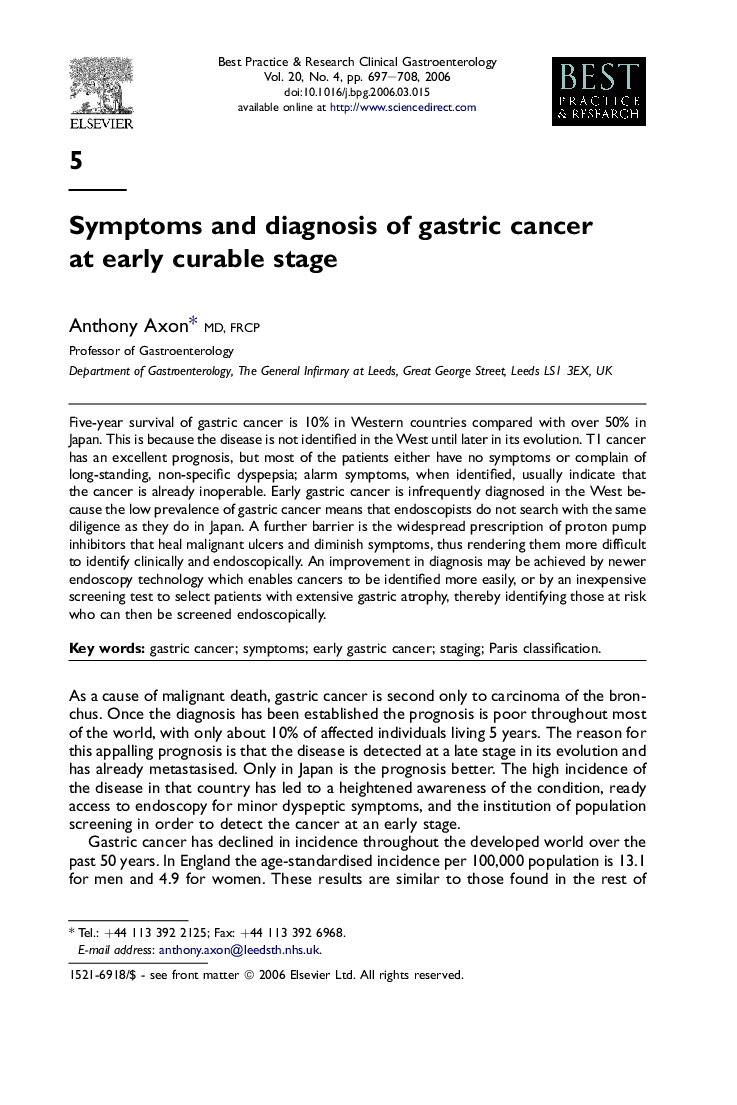| Article ID | Journal | Published Year | Pages | File Type |
|---|---|---|---|---|
| 3254825 | Best Practice & Research Clinical Gastroenterology | 2006 | 12 Pages |
Five-year survival of gastric cancer is 10% in Western countries compared with over 50% in Japan. This is because the disease is not identified in the West until later in its evolution. T1 cancer has an excellent prognosis, but most of the patients either have no symptoms or complain of long-standing, non-specific dyspepsia; alarm symptoms, when identified, usually indicate that the cancer is already inoperable. Early gastric cancer is infrequently diagnosed in the West because the low prevalence of gastric cancer means that endoscopists do not search with the same diligence as they do in Japan. A further barrier is the widespread prescription of proton pump inhibitors that heal malignant ulcers and diminish symptoms, thus rendering them more difficult to identify clinically and endoscopically. An improvement in diagnosis may be achieved by newer endoscopy technology which enables cancers to be identified more easily, or by an inexpensive screening test to select patients with extensive gastric atrophy, thereby identifying those at risk who can then be screened endoscopically.
